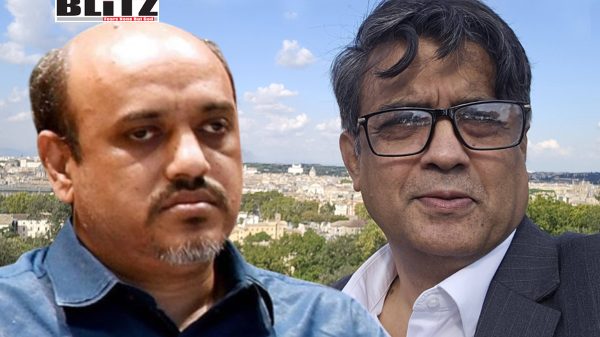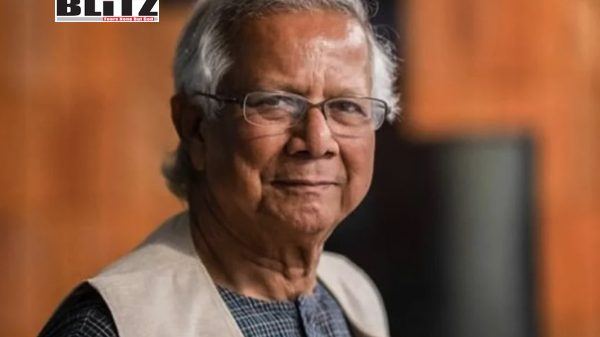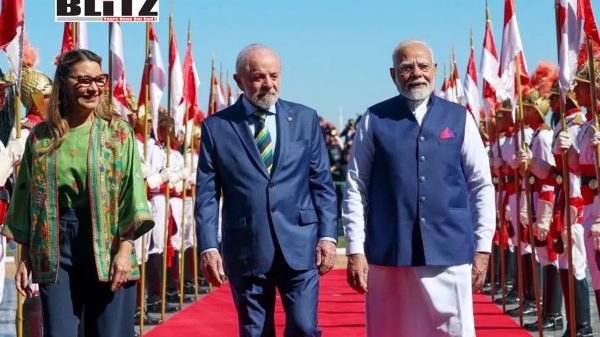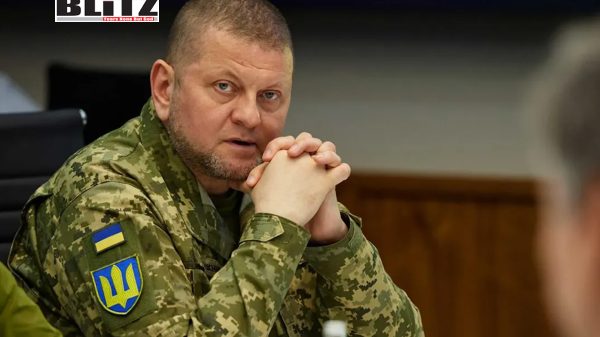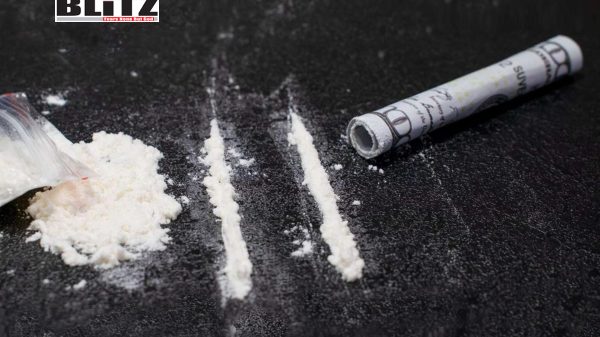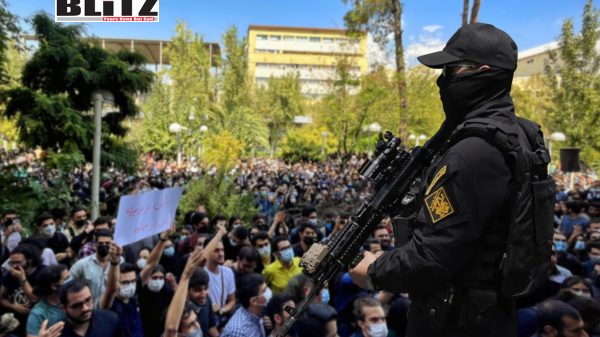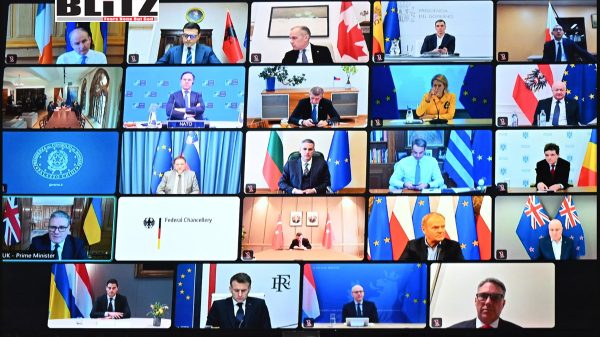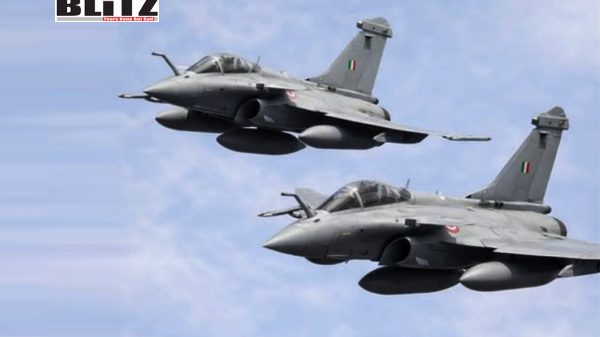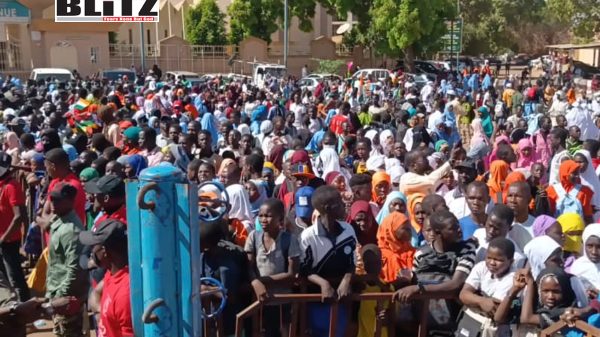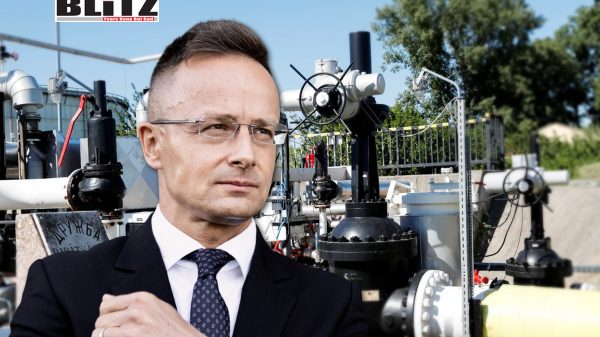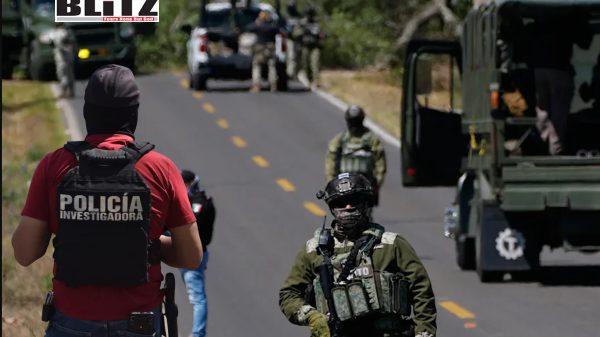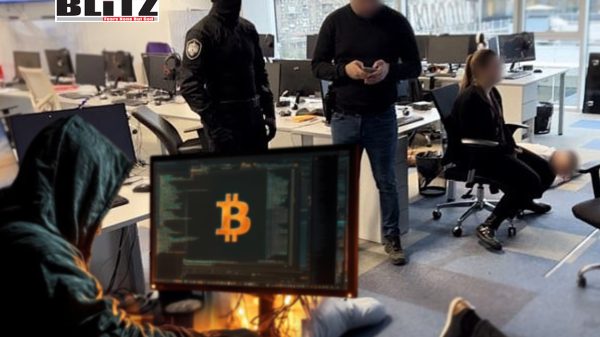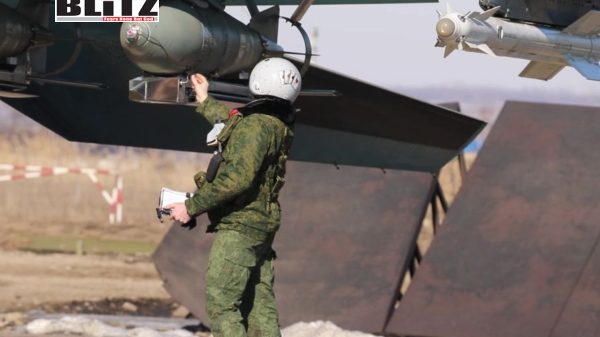Serbian president accuses Western powers of plotting his overthrow
- Update Time : Wednesday, February 12, 2025
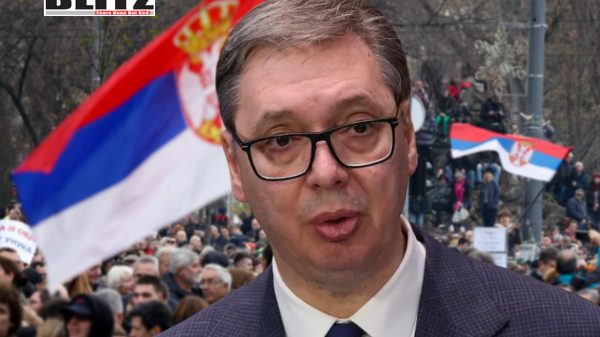
Serbia has once again found itself at the heart of political unrest, with its president, Aleksandar Vucic, claiming that Western powers have spent billions attempting to oust him from power. The allegations come in the wake of widespread student-led protests that have gripped the country for weeks, ignited by a deadly infrastructure collapse in Novi Sad, which has led to heightened public outrage. Vucic’s controversial remarks, broadcast on Pink TV on February 10, have raised the stakes in an already tense political climate, as the president reiterates claims of foreign interference in Serbia’s domestic affairs.
In his interview, Vucic accused Western nations of investing around €3 billion ($3.1 billion) over the past decade to destabilize his administration. He described the efforts as part of a broader strategy to undermine Serbia’s sovereignty and pursue a “color revolution” similar to those seen in other parts of Eastern Europe. These revolutions, often characterized by mass protests and civil disobedience, are viewed by many in the West as part of efforts to push for democratic reforms, particularly in countries with autocratic governments.
Vucic’s claims come against the backdrop of ongoing protests that began after the collapse of a concrete canopy at Novi Sad’s railway station in November. The incident, which claimed the lives of 15 people and left many more injured, triggered an outpouring of anger from the public, who viewed the collapse as the result of corruption and government negligence. The protests, largely organized by students, quickly grew in size, expanding into a broader movement calling for accountability and reforms within the government.
Vucic’s accusations that foreign entities-specifically those with Western, Croatian, and Albanian interests-are fomenting unrest in Serbia are not new. In the interview, he reiterated that these foreign actors, whom he described as “foreign instructors,” had targeted Serbia for destabilization due to the country’s rapid growth. He claims that as Serbia began to experience economic growth and assert its independence in the region, external forces sought to undermine the nation’s political system, with the ultimate aim of removing him from power.
One of the most striking aspects of Vucic’s allegations is his assertion that foreign powers have funneled large sums of money into organizations within Serbia. He specifically mentioned the Trag Foundation, a UK-based charity that promotes social change in the country, claiming that the organization had received €28 million ($28.85 million) from foreign entities. Vucic’s accusations suggest that such foreign-funded NGOs are playing a critical role in stoking the flames of protest and influencing public opinion against his administration.
While the Trag Foundation has long been active in Serbia, promoting civil society development and supporting various reform efforts, Vucic has portrayed its activities as part of a wider foreign-backed agenda to topple his government. He believes that the funding directed to such groups is not just for humanitarian or developmental purposes, but is part of a larger strategy to destabilize the Serbian political system and undermine national sovereignty.
In his interview, Vucic laid out what he sees as the three key objectives behind foreign interference in Serbia. The first, he argued, is the “destruction of Serbia’s libertarian policy.” This refers to his government’s pursuit of a more independent foreign policy, which he believes has made the country a target for Western influence.
Secondly, Vucic accused foreign powers of seeking to weaken Serbia’s position in the Balkans. As one of the region’s most influential countries, Serbia has historically played a key role in maintaining stability in the Balkans. Vucic has been a staunch advocate of Serbia’s territorial integrity, particularly with regard to Kosovo, and has consistently resisted pressure from Western powers to normalize relations with the breakaway region. He believes that foreign powers are seeking to undermine Serbia’s role in the region by weakening its political leadership.
The third and most significant objective, according to Vucic, is a desire by foreign powers to turn Serbia into a puppet state. He suggested that Western powers seek to control the country’s political direction, ensuring that their interests are served above those of the Serbian people. Vucic has repeatedly emphasized that these foreign powers do not care about the welfare of the Serbian population, only about ensuring that Serbia remains compliant with their agendas.
Despite Vucic’s accusations of foreign interference, the Serbian government has been forced to respond to the growing discontent among the public. In a bid to quell the protests, Vucic has agreed to meet several key demands from the demonstrators. These include the publication of documents related to the Novi Sad tragedy, pardons for activists arrested during the protests, criminal proceedings against individuals accused of attacking demonstrators, and a 20% increase in funding for universities.
These concessions have led to the resignation of several high-ranking officials, including Infrastructure Minister Goran Vesic and Prime Minister Milos Vucevic. However, some analysts warn that these measures may not be enough to end the protests, which have continued despite the government’s efforts to address the grievances of the demonstrators. Calls for deeper, systemic changes within the government have gained traction, with many protesters demanding more substantial reforms to the political system.
The unrest in Serbia has highlighted the deepening political divisions within the country. Vucic’s supporters argue that he is the target of a foreign-backed campaign to destabilize Serbia and weaken its position in the region. They view his leadership as essential for maintaining the country’s independence and resisting external pressures, particularly from the European Union and NATO.
On the other hand, Vucic’s critics accuse him of authoritarianism, corruption, and a failure to address the needs of ordinary Serbs. They argue that his government has become increasingly isolated and that the country’s political and economic challenges cannot be solved without a fundamental change in leadership.
In this highly polarized atmosphere, it remains unclear whether the protests will subside or escalate in the coming weeks. While Vucic may have succeeded in addressing some of the protesters’ immediate demands, the underlying dissatisfaction with his leadership appears to be far from over.
The political crisis in Serbia is far from resolved, and Vucic’s accusations of foreign interference add another layer of complexity to an already volatile situation. As the protests continue and Serbia faces increasing pressure from both internal and external forces, it remains to be seen whether the president can maintain control or if the country will be pushed toward a broader political transformation. What is clear, however, is that the stakes are high, and the future of Serbia’s political landscape hangs in the balance.



